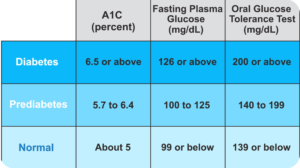The DASH diet is a well-thought-out nutritional approach to combatting hypertension. The diet provides other health benefits as well. An abbreviation of Dietary Approaches to Stop Hypertension, the DASH diet was created by the National Institutes of Health (NIH) specifically to aid individuals with dangerously high blood pressure.

The development of the DASH diet was data driven and grew out of a study published in The New England Journal of Medicine in 1997. The study found that a whole-food-focused diet could lower blood pressure in people who did not have hypertension, and lowered it even more for those who did. A 2016 meta analysis confirmed the effectiveness of the diet in lowering blood pressure.
Those results are largely due to the fact that the eating plan is weighted toward low-sodium, plant-based meals. It focuses on whole foods, particularly those that are rich in calcium, potassium, magnesium, fiber, and lean protein. It severely limits refined sugar intake and eating saturated or trans fats. You can find the particulars of the plan, including weekly serving recommendations for different foodstuffs, on the National Institutes for Health website.
The Benefits
There are several compelling reasons for anyone—even people not suffering from hypertension—should consider the DASH eating plan.
- Trusted, proven way to eat. DASH may possibly be the most extensively researched diet, which means the benefits have science instead of anecdotal claims behind them. Beyond hypertension, the eating plan appears to improve other cardiovascular issues, and can help diabetics and pre-diabetics moderate blood sugar levels (especially when coupled with a commonsense exercise regimen). There is also some indications that the diet could help lower cholesterol, although that effect may be modest, depending on how disciplined you are about the fats you eat.
- Available whole foods. The plan was developed to focus on foods that can be found in most major grocery stores year-round. Most of these are also less expensive than exotic choices would have been. The recipes offered by the NIH and other online sources focus on the ease of preparation and variety of flavors.
- Calorie adjusted options. DASH options include different calorie intake levels for people of varying degrees of activity. This allows you to adjust how much you eat based on your age, BMI, and activity level.
- Balance. The DASH eating plan was specifically engineered to fulfill nutritional recommendations for all nutrients. You won’t need to scramble and supplement to fill in missing minerals, vitamins, or nutrients.
The Challenges
Although the DASH diet offers plentiful health benefits, it’s important to know what you’re committing to before you adopt the diet. It can be a somewhat taxing process depending on how much you cook and the type of food shopping you do now.
- Made from scratch. Because the diet leans so heavily on whole foods, many people will have to prep and cook dishes much more than they do with their current diet. Processed foods don’t fit with DASH, so there may be a transition away from convenience, pre-packaged products. You can find meal plans and recipes on the NIH site, and on many websites offered for free. Of course, there are also cookbooks based on the DASH diet.
- Not a “Diet” diet. The DASH diet was not developed with weight loss as a goal. There is also not much evidence to support its use for that purpose. You can choose a lower-calorie meal plan on the DASH diet but you may not experience the initial weight loss that other diets promise. (To learn how to dovetail weight loss strategies with the DASH diet, check out our post “Fruitful Weight Loss.”)
Although a generally healthy diet, the same caveat applies as it would for other diets: Always consult your physician before starting a new diet or radically changing the way you eat. The DASH diet may not be ideal for people with chronic liver or kidney diseases, existing heart conditions, lactose intolerance, or serious gastrointestinal illnesses such as celiac disease.





